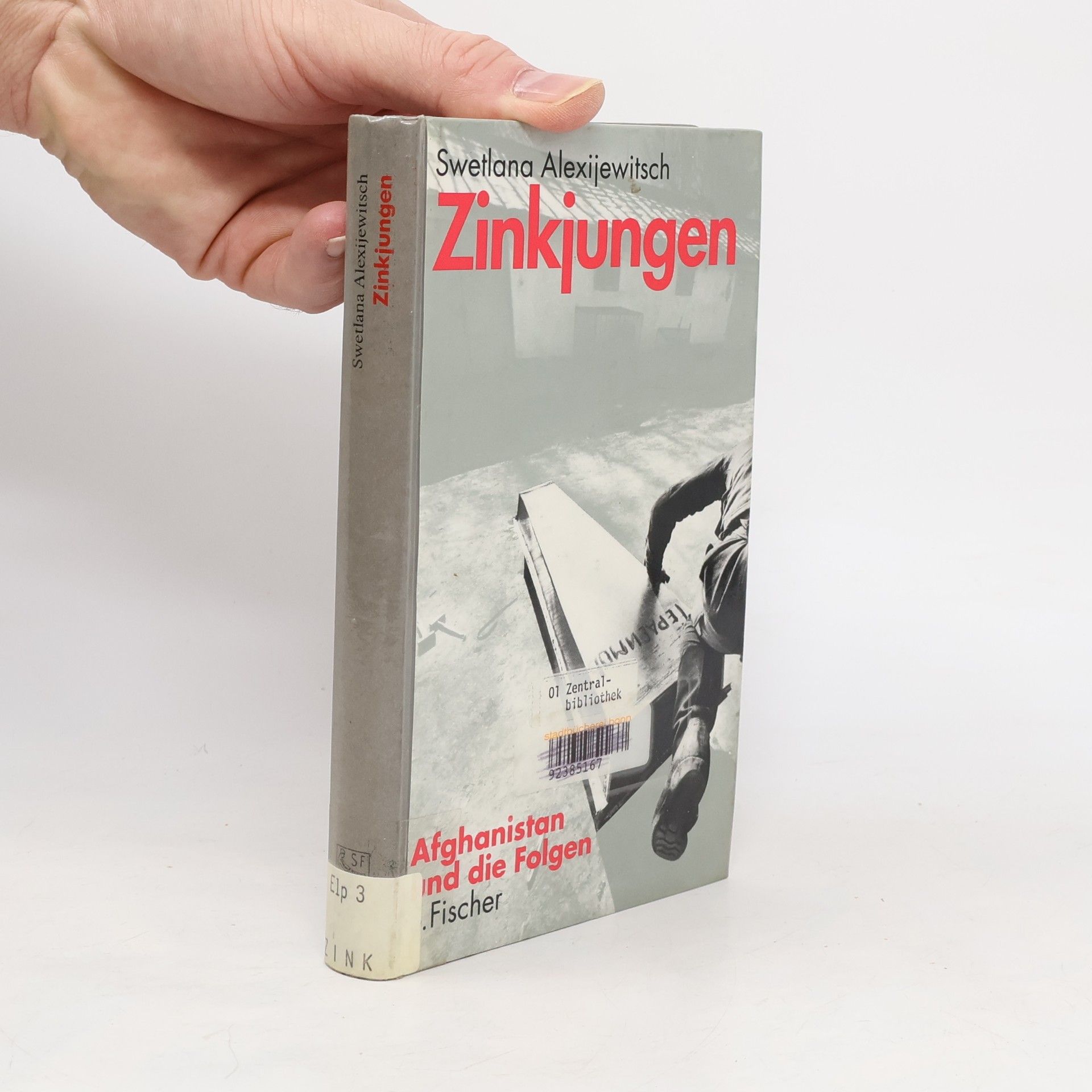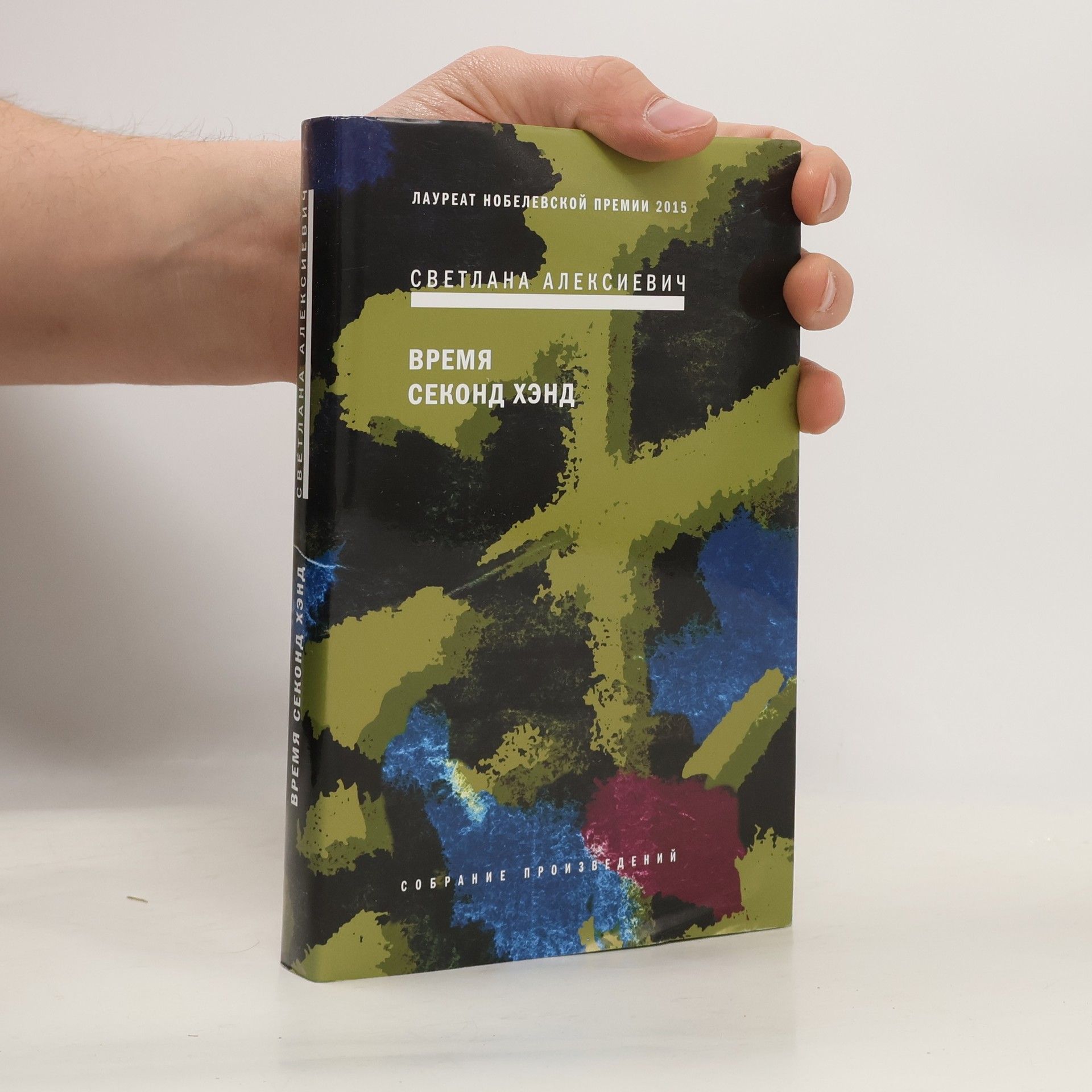„Ganze Züge voller Frauen gingen an die Front“, erinnert sich eine ehemalige Rotarmistin im Gespräch mit Swetlana Alexijewitsch. „Es waren nicht mehr genug Männer da. Sie waren gefallen. Lagen unter der Erde oder waren in Gefangenschaft.“ Die Frauen waren „bereit, für die Heimat zu sterben. So waren wir erzogen.“ Sie waren nicht nur Ärztinnen und Krankenschwestern, sondern auch Fliegerinnen, weibliche Scharfschützen und Panzersoldaten. Und sie waren jung: „Ich war noch so klein, als ich an die Front ging“, erzählt eine ehemalige Scharfschützin, „dass ich im Krieg noch gewachsen bin.“ Und sie waren für ihr Leben traumatisiert. Sie erzählen der Autorin vom Tod und vom Töten, von Blut, Dreck und Läusen, von Kriegsverbrechen, von Verwundungen, Schmerzen, Hunger und miserabler Ausrüstung – und wie man sie vergessen hat, als es nach dem Krieg darum ging, die „Helden“ zu feiern. Das erschütternde Dokument einer ausgeblendeten Seite des Zweiten Weltkriegs: Rund eine Million Frauen haben in der Roten Armee gekämpft. Swetlana Alexijewitsch lässt sie zu Wort kommen.
Svetlana Alexievitch Bücher
Swetlana Alexijewitsch zeichnet literarische Porträts des Lebens während und nach dem Sowjetunion durch die Erfahrungen von Einzelpersonen. In ihren Büchern verwendet sie Interviews, um eine Collage aus einer breiten Palette von Stimmen zu schaffen. Mit ihren „Dokumentarromanen“ bewegt sich Alexijewitsch, die Journalistin ist, an der Grenze zwischen Reportage und Fiktion. Ihre Hauptwerke bilden ein umfangreicher Zyklus „Stimmen der Utopie“. Alexijewitsch kritisiert in ihren Büchern die politischen Regime der Sowjetunion und später Belarus.
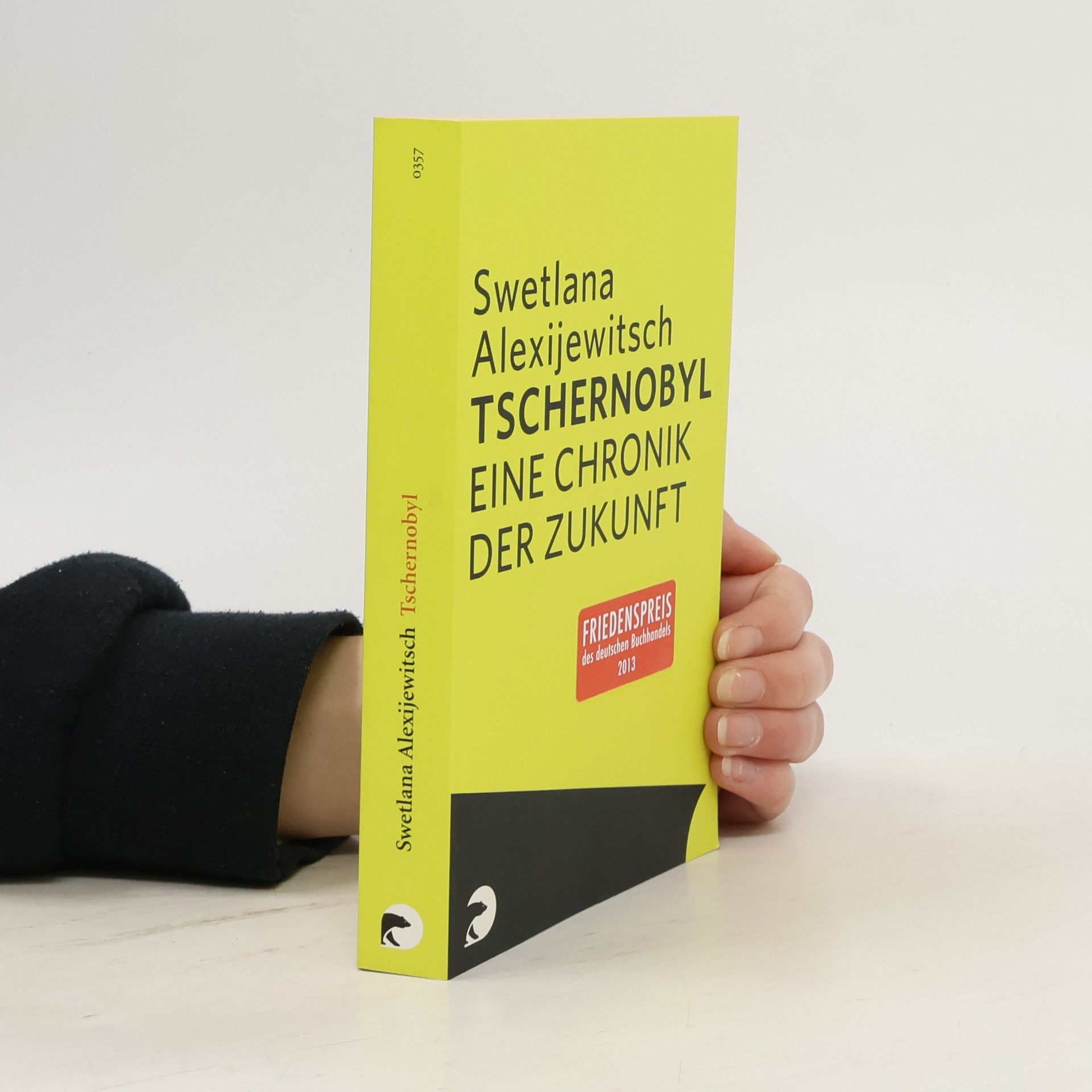
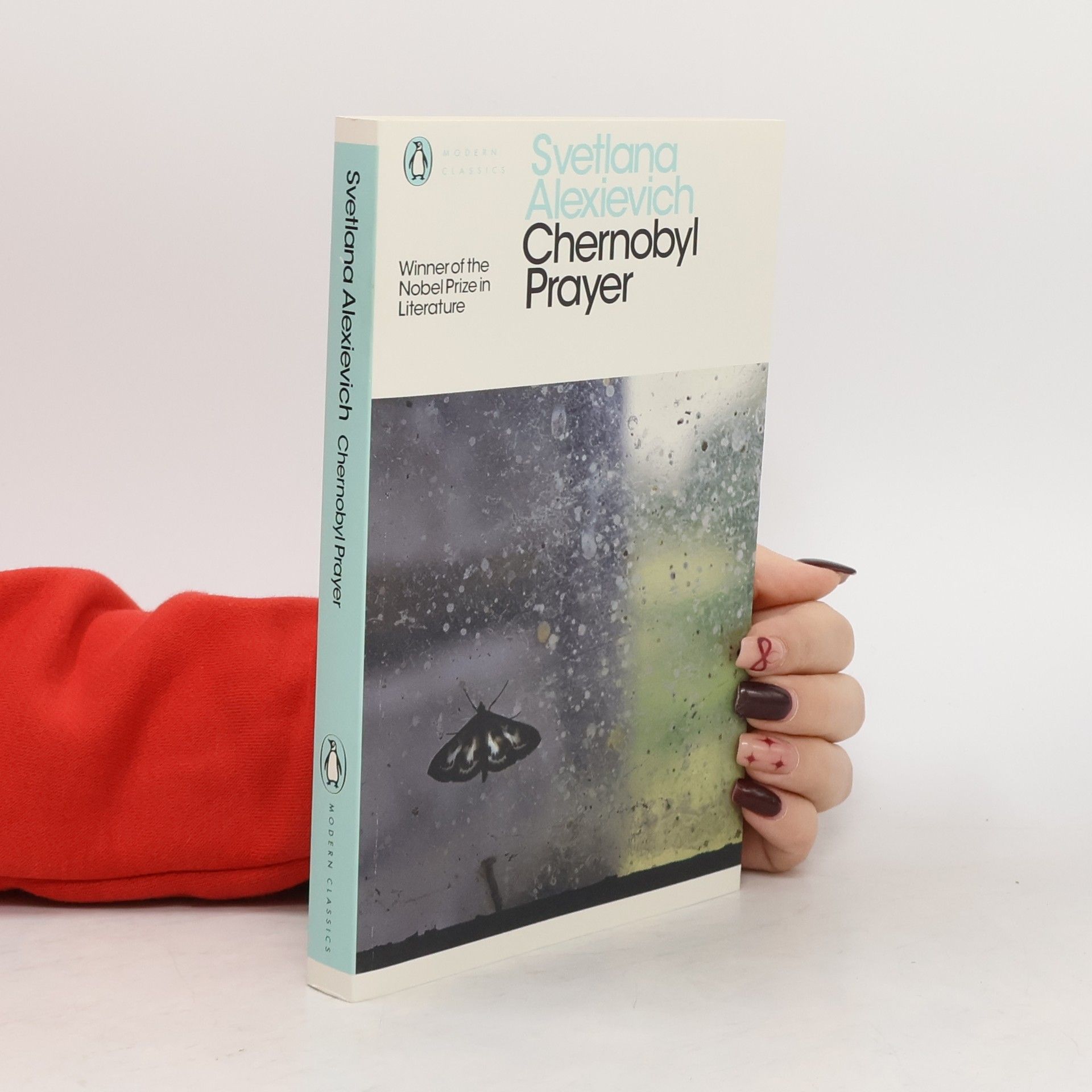


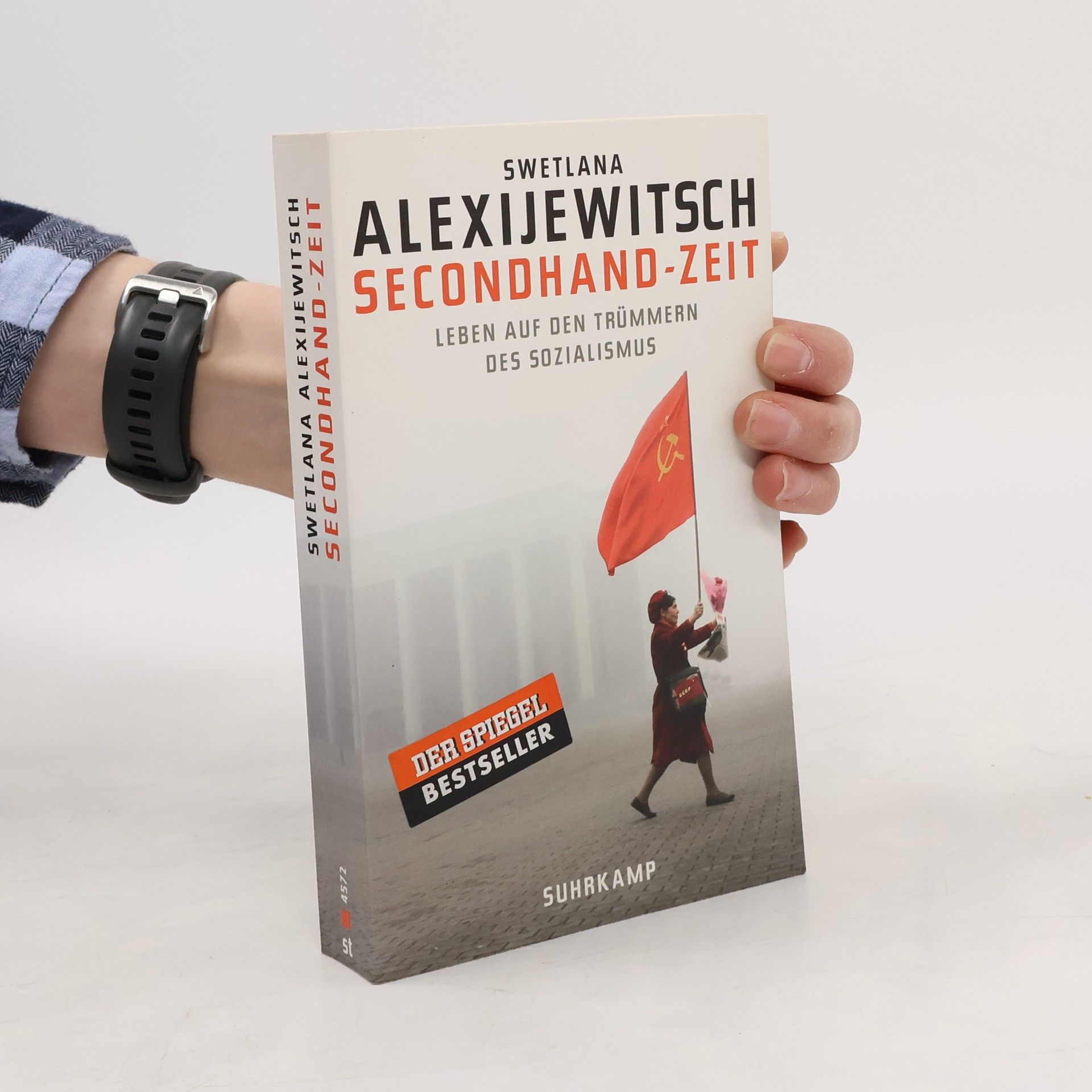

Gut zwanzig Jahre sind vergangen seit dem Zusammenbruch des Sowjetimperiums, die Russen entdeckten die Welt, und die Welt entdeckte die Russen. Inzwischen aber gilt Stalin wieder als großer Staatsmann, die sozialistische Vergangenheit wird immer öfter, vor allem von jungen Menschen, nostalgisch verklärt. Russland, so Swetlana Alexijewitsch, lebt in einer Zeit des »Second-hand«, der gebrauchten Ideen und Worte. Die Reporterin befragt Menschen, die sich von der Geschichte überrollt, gedemütigt, betrogen fühlen. Sie spricht mit Frauen, die in der Roten Armee gekämpft haben, mit Soldaten, Gulag-Häftlingen, Stalinisten. »Historiker sehen nur die Fakten, die Gefühle bleiben draußen …, ich aber sehe die Welt mit den Augen der Menschforscherin.« Wer das Russland von heute verstehen will, muss dieses Buch lesen. Swetlana Alexijewitsch formt aus den erschütternden Erfahrungen von Menschen, die zwischen Neuanfang und Nostalgie schwanken, den Lebensroman einer noch nicht vergangenen Epoche.
Last Witnesses (Adapted for Young Adults)
- 288 Seiten
- 11 Lesestunden
A powerful portrait of the personal consequences of war as seen through the innocent eyes of children, from a Nobel Prize-winning writer. Nobel Prize-winning writer Svetlana Alexievich delves into the traumatic memories of children who were separated from their parents during World War II--most of them never to be reunited--in this this young adult adaptation of her acclaimed nonfiction "masterpiece" (The Guardian), Last Witnesses: An Oral History of the Children of WWII. The personal narratives told by those who were children during WWII and survived harrowing experiences, are astounding. So many children were separated from their loved ones in the midst of the terror and chaos. As a result, some grew up in orphanages or were raised by grandparents or extended family; others were taken in and cared for by strangers who risked punishment for such acts. Still others lived on their own or became underage soldiers. Forthright and riveting, these bravely told oral histories of survival reveal the heart-rending details of life during wartime while reminding us that resilience is possible, no matter the circumstances.
Die letzten Zeugen
Kinder im Zweiten Weltkrieg
Jahrzehnte nach dem Ende des Zweiten Weltkriegs sprechen Männern und Frauen, die beim Einmarsch der Deutschen in Weißrussland noch Kinder waren, zum ersten Mal darüber, woran sie sich erinnern. Ihre erschütternden Berichte machen Die letzten Zeugen zu einem der eindringlichsten Antikriegsbücher überhaupt. »Ich bat sie alle um eines«, schreibt Alexijewitsch. »Sich an ihre kindlichen Worte zu erinnern. An ihre kindlichen Gefühle. Zurückzukehren in jene Zeit, als sie noch Engel waren. Denn ich wusste: Mit anderen Worten lässt sich das nicht wiedergeben.« Oft sind diese Erinnerungen nur Bruchstücke, und doch haben diese Kinder Dinge gesehen und erlitten, die niemand, am allerwenigsten ein Kind, sehen und erleiden dürfte.Nobel- und Friedenspreisträgerin Swetlana Alexijewitsch erweist sich einmal mehr als begnadete Zuhörerin und große Chronistin. In ihren Texten versteht sie es, den Erfahrungen von Menschen in Extremsituationen, im Ausnahmezustand, einen einzigartigen Resonanzraum zu verschaffen.
Chernobyl Prayer : a chronicle of the future
- 304 Seiten
- 11 Lesestunden
Winner of the Nobel Prize in Literature 'Absolutely essential and heartbreaking reading. There's a reason Ms. Alexievich won a Nobel Prize' - Craig Mazin, creator of the HBO / Sky TV series Chernobyl - A new translation of Voices from Chernobyl based on the revised text - In April 1986 a series of explosions shook the Chernobyl nuclear reactor. Flames lit up the sky and radiation escaped to contaminate the land and poison the people for years to come. While officials tried to hush up the accident, Svetlana Alexievich spent years collecting testimonies from survivors - clean-up workers, residents, firefighters, resettlers, widows, orphans - crafting their voices into a haunting oral history of fear, anger and uncertainty, but also dark humour and love. A chronicle of the past and a warning for our nuclear future, Chernobyl Prayer shows what it is like to bear witness, and remember in a world that wants you to forget. 'Beautifully written. . . heart-breaking' - Arundhati Roy, Elle 'One of the most humane and terrifying books I've ever read' - Helen Simpson, Observer
Über mehrere Jahre hat Swetlana Alexijewitsch Menschen befragt, deren Leben von der Tschernobyl-Katastrophe gezeichnet wurden. Entstanden sind eindringliche psychologische Portraits - literarisch bearbeitete Monologe - , die von Menschen berichten, die sich ihre Zukunft in einer Welt der Toten aufbauen müssen.
Der Krieg, den die UdSSR 1979–1989 in Afghanistan führte, gilt als das „sowjetische Vietnam“. Eine Million Soldaten durchlebte das Grauen, mindestens 50.000 starben. Das Regime selbst verschwieg der Öffentlichkeit die brutale Realität des Kriegs. So wurden die verstümmelten Leichen der gefallenen Soldaten den Angehörigen nur in zugeschweißten Zinksärgen übergeben. Umso schockierter reagierte die Gesellschaft in Russland, als Anfang der 1990er Jahre das wahre Ausmaß der Tragödie bekannt wurde – auch durch Alexijewitschs mutiges Buch „Zinkjungen“. Darin lässt sie überlebende Soldaten, Krankenschwestern, Witwen und Mütter von Gefallenen zu Wort kommen und führt uns so das Trauma einer ganzen Gesellschaft vor Augen.
La guerre n'a pas un visage de femme - Prix Nobel de Littérature 2015
- 414 Seiten
- 15 Lesestunden
La Seconde Guerre mondiale ne cessera jamais de se révéler dans toute son horreur. Derrière les faits d'armes, les atrocités du champ de bataille et les crimes monstrueux perpétrés à l'encontre des civils, se cache une autre réalité. Celle de milliers de femmes russes envoyées au front pour combattre l'ennemi nazi. Svetlana Alexievitch a consacré sept années de sa vie à recueillir des témoignages de femmes dont beaucoup étaient à l'époque à peine sorties de l'enfance. Après les premiers sentiments d'exaltation, on assiste, au fil des récits, à un changement de ton radical, lorsque arrive l'épreuve fatidique du combat, accompagnée de son lot d'interrogations, de déchirements et de souffrances. Délaissant le silence dans lequel nombre d'entre elles ont trouvé refuge, ces femmes osent enfin formuler la guerre telle qu'elles l'ont vécue. Un recueil bouleversant, des témoignages poignants.
Время секонд хэнд
- 512 Seiten
- 18 Lesestunden
